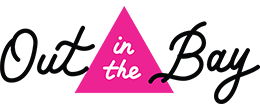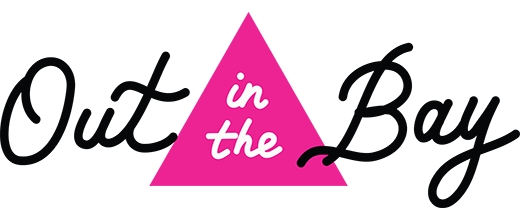Despite clear evidence that conversion therapy doesn’t work and actually harms LGBTQ people — with high rates of serious mental health issues — the practice of attempting to conform one’s sexual orientation or gender identity to societal norms continues. An estimated 700,000 U.S. adults have undergone conversion therapy with sometimes fatal consequences.
Yet there is hope. Many former “ex-gay” group leaders, after finally accepting their own queerness, now speak out against conversion therapy. 20 states and 130-some U.S. municipalities have banned the practice — at least on minors — and Canada outlawed it nationally effective Jan. 7.
This week’s Out in the Bay guests share their personal connections with conversion therapy, the challenges survivors face, and the work they’re doing to eliminate the practice.
Kristine Stolakis directed and produced Pray Away, a Netflix documentary inspired by her uncle’s experience that takes viewers inside the history and current state of the “pray away the gay” or “ex-gay” movement, which she calls “a movement of hurt people hurting other people, of internalized homophobia and transphobia wielded outward.”
Her uncle endured a “lifetime of mental health challenges” that Stolakis now knows, through her film research, are common for people subjected to conversion therapy: depression, anxiety, drug and alcohol addiction, suicidality and other self-harm.
In a Pray Away scene included in our podcast, Julie Rodgers reads from the draft of her now-published book Outlove: A Queer Christian Survival Story: “The first time I burned myself, I was sitting on a curb outside of the church after a ‘Living Hope’ meeting. As my cigarette burned low … I shoved the burning end of it into my shoulder and listened as the skin on my left arm sizzled.”
Mathew Shurka co-founded the National Center for Lesbian Right’s Born Perfect campaign in 2014. It seeks to end conversion therapy by passing laws to protect LGBTQ children and adults, fights in courtrooms to ensure their safety, and raises awareness about the practice’s dangers.
Shurka’s conversion therapy, from age 16 to 21, included separation from his mother and sisters for three years “based on the false belief that being gay is caused by a man being too close to his mother or other female relatives.” He later “went to therapy to overcome conversion therapy,” and since co-founding Born Perfect, says he’s “in a great place.”
Hear much more from Shurka and Stolakis – and film clips – on this edition of Out in the Bay. Just hit the arrow under the headline at the top of this page.
Please help us keep bringing queer air to your ears. Out in the Bay is an independent, non-profit production. We receive no funds from podcast platforms nor from radio stations that air Out in the Bay weekly. Your gift will help keep LGBTQ voices and stories coming to you and others who might not be able to give, so please chip in what you can. (Donate tabs on our website will take you to a Media Alliance interface. Media Alliance is our non-proft 501(c)3 fiscal agent. Your gift will be earmarked for Out in the Bay.)
Out in the Bay is supported in part by Project Open Hand, which provides 2,500 life-saving meals and 200 bags of groceries daily to sustain people experiencing illness, social isolation, or the health challenges of aging. Learn more at OpenHand.org. Project Open Hand – Meals with Love
Photo: Freedom March, a current “ex-gay” group, co-opts queer imagery and holds rallies against conversion therapy bans. Cropped still image from the film “Pray Away” courtesy of Multitude Films/Netflix.
Our talk with Mathew Shurka and Kristine Stolakis was produced by Kendra Klang, with sound design and editing by Christopher Beale. It first aired January 6, 2022. As conversion therapy continues, we present it again.



